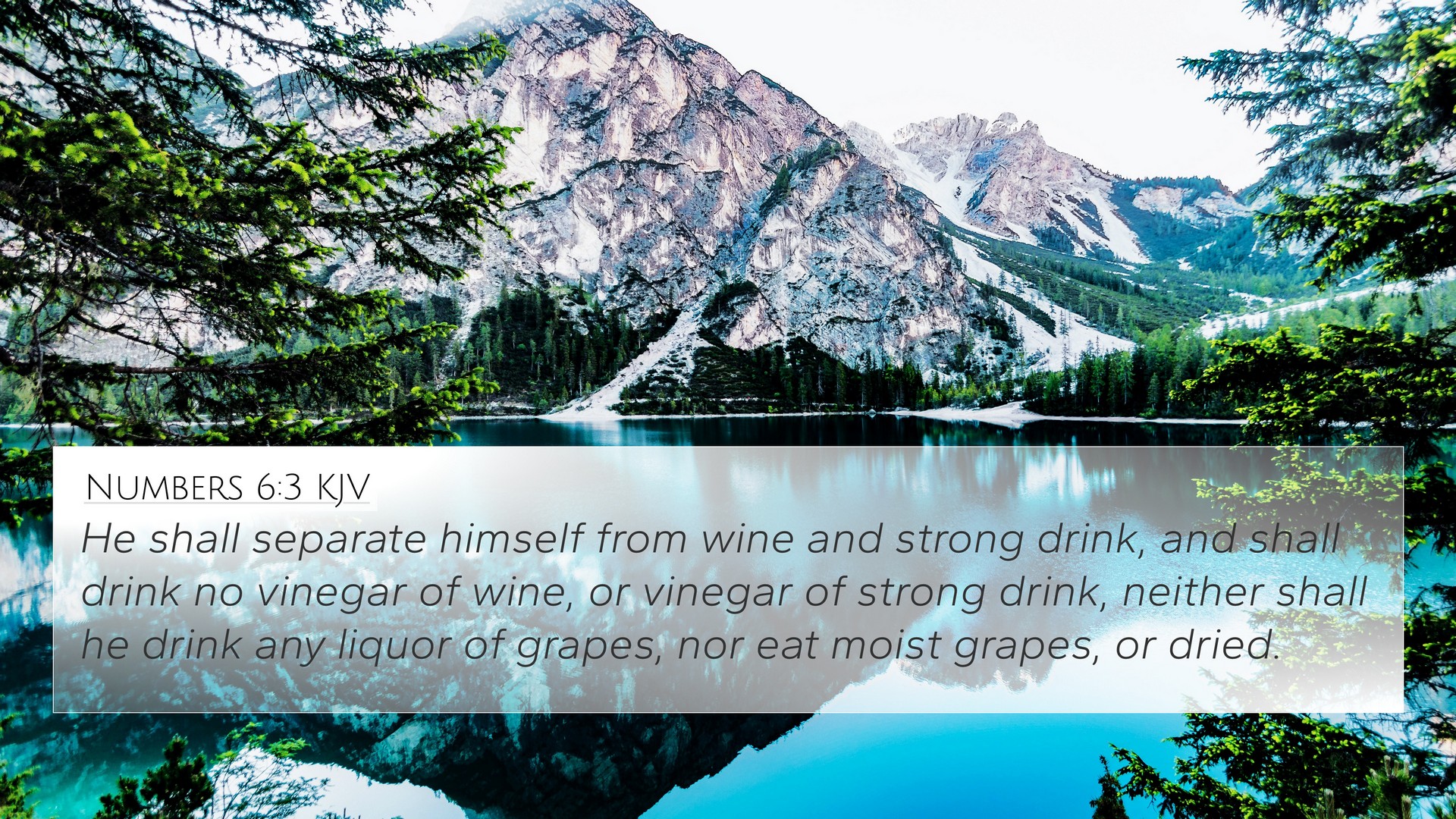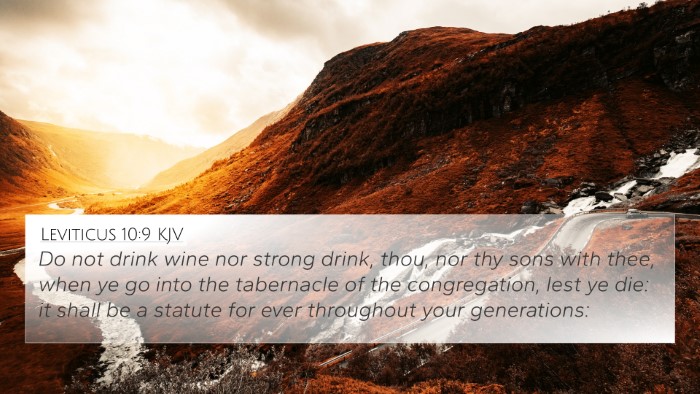Understanding Numbers 6:3
Verse: "He shall separate himself from wine and strong drink, and shall drink no vinegar of wine, or vinegar of strong drink, neither shall he drink any liquor of grapes, nor eat moist grapes or dried."
The verse from Numbers 6:3 is part of the Nazarite vow, focusing on the commitments required of those who take this special dedication to the Lord. Here we explore the meaning and implications of this verse by drawing insights from various public domain commentaries.
Summary of Commentary Insights
Matthew Henry explains that the Nazarite vow represents a deep commitment to holiness and separation from worldly pleasures. The abstention from wine and fermented drink symbolizes a life set apart for God's service and a call to spiritual integrity.
Albert Barnes highlights the significance of wine as a common pleasure in ancient Israel, and the Nazarite's abstinence indicates a serious devotion that transcends typical worship. This physical separation is a metaphor for spiritual purity, drawing a line between the sacred and the profane.
Adam Clarke provides that the injunction against consuming grapes in any form—whether as fresh or dried—stresses the depth of commitment. It serves to illustrate the lengths to which a Nazarite must go in distinguishing themselves from others to focus solely on God's purposes.
Key Themes and Connections
- Separation and Holiness: The commitment to abstain from wine underlines a deeper spiritual separation required for those wishing to serve God in a distinctive manner.
- Dedication: The Nazarite vow is a unique expression of dedication involving physical, emotional, and spiritual sacrifices.
- Symbolism of Wine: Wine often symbolizes joy and celebration in scripture; the rejection of wine signifies the Nazarite's choice to pursue a different kind of joy—in being devoted to God.
Cross-Referencing Related Bible Verses
This verse is richly connected to several others throughout the biblical text that deal with themes of separation, dedication, and holiness. Some important cross-references include:
- Leviticus 10:9-10: Prohibitions against consuming strong drink for priests, emphasizing holiness.
- 1 Corinthians 9:25: Paul speaks about running a race with self-control, akin to the Nazarite’s discipline.
- Judges 13:4: The vow of Samson, who was dedicated as a Nazarite from birth.
- Jeremiah 35:6-8: The Recabites' vow of abstaining from wine as a means of faithfulness.
- Romans 12:1: Paul urges believers to present their bodies as living sacrifices, similar to the commitment of a Nazarite.
- Hebrews 12:1: A call to lay aside every weight, paralleling the abstinence in the Nazarite vow.
- 2 Corinthians 6:17: Paul calls for separation from the unclean, reflecting Nazarite themes of distinct living.
Exploring Biblical Themes Through Cross-References
When studying Numbers 6:3, look for thematic connections between the Old and New Testaments, demonstrating the continuity of God's call for holiness:
- Identifying Connections: Explore how numbers of vow and dedication appear across scriptures.
- Cross-referencing with Priestly Roles: Investigate how the Nazarite parallels the functions and call of priests in ancient Israel.
- Spiritual Disciplines: Relate the physical abstention to modern spiritual disciplines that call for self-denial.
Conclusion
In summary, Numbers 6:3 serves as a profound reminder of the call to holiness and separation intended within the Nazarite vow. It teaches us not only about physical abstinence from certain pleasures but also about the deeper spiritual commitment required when dedicating ourselves to God. By examining this verse alongside related scriptures, we gain a holistic view of its implications for believers today.
This exploration into Numbers 6:3 can enrich your understanding and provide a robust framework for your personal study and discussion within a community committed to learning more about biblical texts and their meanings.













